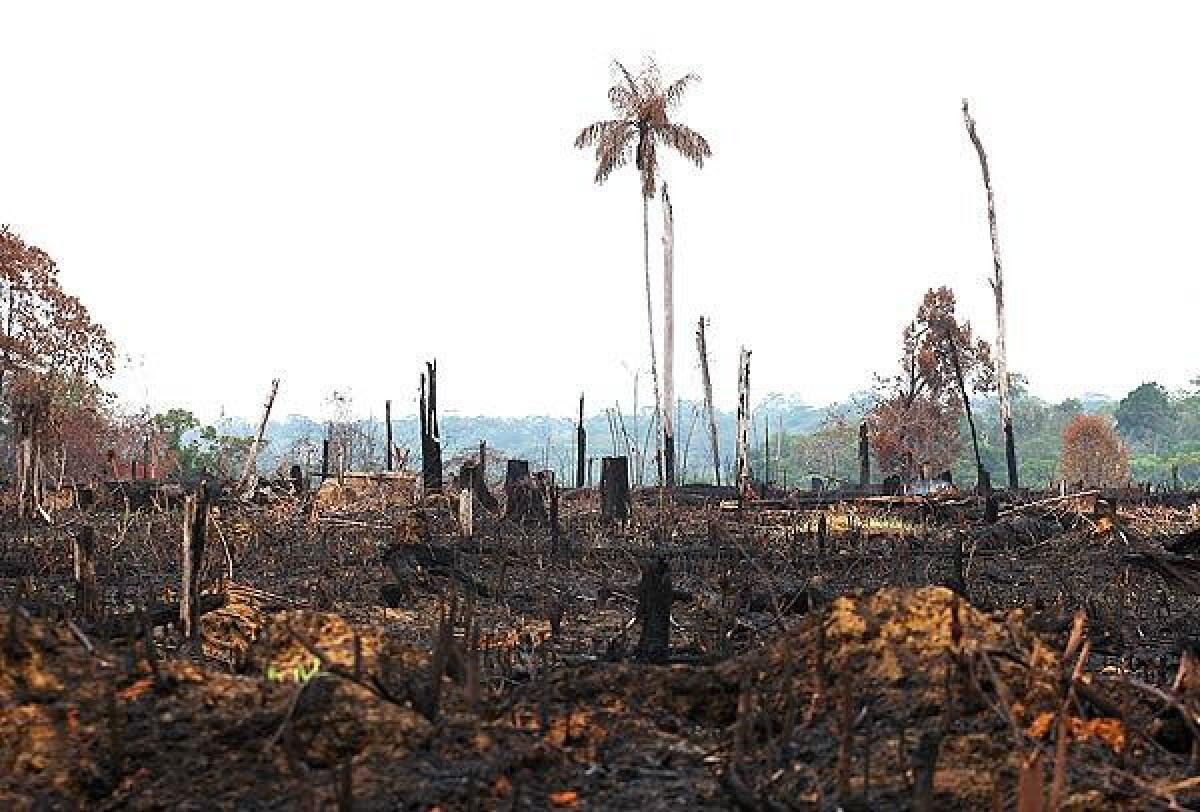School kids are drawn into battle over palm oil and the environment

Schoolchildren in Malaysia are at the center of the controversy over palm oil after staging a play that claimed it causes deforestation and the disappearance of thousands of orangutans every year.
Students of the International School at ParkCity in Kuala Lumpur showed an excerpt from an anti-palm oil advertisement made by Greenpeace, prompting criticism of the school by Teresa Kok, the minister in charge of the industry. Kok, who’s championed the commodity -- Malaysia’s biggest agricultural export, which is used in a huge range of consumer products, including ice cream, bread, cosmetics and cleaning products -- said the school was spreading anti-palm-oil propaganda.
The school later apologized, but questions have been raised over how far the government will go to control the image of its key agricultural industry. The scene encapsulates the larger political tensions with the European Union, where palm oil faces new limits on its use in the bloc’s biofuel sector. The furor surrounding the school shows just how sensitive the government has become over how palm oil is perceived.
“The EU is an environmental and sustainability trend setter,” said M. R. Chandran, who has more than 55 years experience in the industry, including starting the Malaysian Palm Oil Assn. Any regulations that entrench a stigma over a product can stir up anxiety, he said.
Emails to ParkCity school for comment weren’t answered after there were no responses to calls.
The stakes are high for Malaysia, where entire towns have developed around palm plantations. Palm generates almost half the country’s agriculture gross domestic product, according to the Department of Statistics. The Malaysian Palm Oil Board estimates the industry makes up about 5% to 7% of total GDP, with export revenue averaging 64.24 billion ringgit ($16 billion) a year in the past five years.
And with prices falling 17% since January 2018, as rising production and slowing demand coincided with drawn-out discussions of the restrictions in the European Parliament, tensions have been growing.
The bigger issue for Malaysia, though, may be that the EU action doesn’t seem to acknowledge the strides the nation has made in “greening” its palm oil sector through integrating sustainable practices. What’s more, buyers in Europe and other countries don’t seem to want to pay a premium for sustainably produced oil.
The EU says its restrictions are driven by concerns over deforestation and climate change. The EU has toughened goals to reduce greenhouse gases and increase use of sustainable renewable energy. Kok is joining with fellow palm oil producer Indonesia in challenging the bloc’s rule changes at the World Trade Organization.
“The reality is that campaigners in the West are on something of a roll, and by continuously fronting their campaigns with emotive images of orangutans and so on, they think they can make a massive difference on the problem of deforestation,” said Jonathon Porritt, co-founder of sustainability lobbyist Forum for the Future. Meanwhile, “protectionism now prevalent in many European countries is the direct result of lobbying by other edible-oil associations,” he said.
Restricting palm in favor of other crops may result in more deforestation. Palm is the world’s most-productive vegetable oil crop and yields six to 10 times as much oil per hectare as rivals such as soy or rapeseed, according to the International Union for Conservation of Nature.
“Boycotting palm oil is just wrong,” Porritt said.
More to Read
Inside the business of entertainment
The Wide Shot brings you news, analysis and insights on everything from streaming wars to production — and what it all means for the future.
You may occasionally receive promotional content from the Los Angeles Times.










